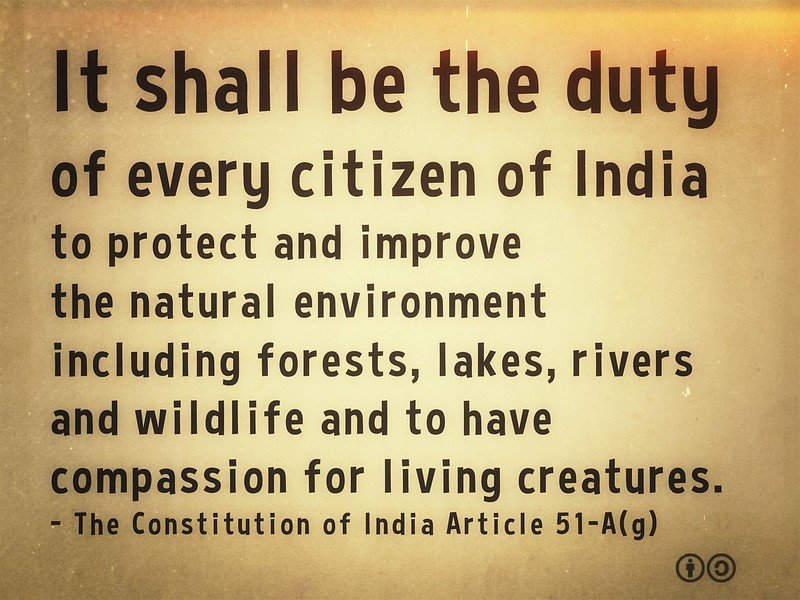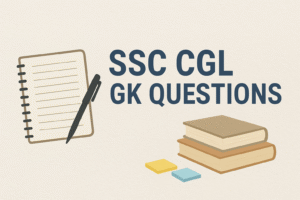MCQ on Indian Constitution With Answer
Are you gearing up for exams like UPSC, SSC, Railway, Banking, Defence, or State PSC? This engaging MCQ on the Indian Constitution features essential questions covering fundamental rights, directive principles, amendments, significant articles, and crucial historical details. Each question is crafted to assess your knowledge and comprehension of India's Constitution. Regularly practicing these questions will help you improve your speed, accuracy, and memory retention for your forthcoming tests.
- Who is known as the chief architect of the Indian Constitution?
a) Jawaharlal Nehru
b) Mahatma Gandhi
c) B.R. Ambedkar
d) Sardar Vallabhbhai Patel
Answer: c) B.R. Ambedkar - The Indian Constitution was adopted on which date?
a) 26th January 1950
b) 15th August 1947
c) 26th November 1949
d) 2nd October 1952
Answer: c) 26th November 1949 - Which part of the Indian Constitution deals with Fundamental Rights?
a) Part III
b) Part IV
c) Part IV-A
d) Part V
Answer: a) Part III - The Preamble of the Indian Constitution declares India to be a:
a) Sovereign Socialist Secular Democratic Republic
b) Sovereign Democratic Republic
c) Socialist Secular Democratic Republic
d) Sovereign Secular Democratic Republic
Answer: a) Sovereign Socialist Secular Democratic Republic - Which article of the Indian Constitution abolishes untouchability?
a) Article 14
b) Article 15
c) Article 17
d) Article 19
Answer: c) Article 17 - The Directive Principles of State Policy are enshrined in which part of the Constitution?
a) Part III
b) Part IV
c) Part V
d) Part VI
Answer: b) Part IV - Who has the power to declare a National Emergency in India?
a) Prime Minister
b) President
c) Parliament
d) Supreme Court
Answer: b) President - The term of the President of India is:
a) 4 years
b) 5 years
c) 6 years
d) 7 years
Answer: b) 5 years - Which article empowers the Parliament to amend the Constitution?
a) Article 368
b) Article 370
c) Article 352
d) Article 356
Answer: a) Article 368 - The Supreme Court of India was established under which article?
a) Article 124
b) Article 125
c) Article 126
d) Article 127
Answer: a) Article 124 - Fundamental Duties were added to the Indian Constitution by which amendment?
a) 42nd Amendment
b) 44th Amendment
c) 73rd Amendment
d) 86th Amendment
Answer: a) 42nd Amendment - Which schedule of the Constitution deals with the allocation of seats in the Rajya Sabha?
a) Eighth Schedule
b) Ninth Schedule
c) Fourth Schedule
d) Fifth Schedule
Answer: c) Fourth Schedule - The concept of ‘Judicial Review' in India is borrowed from which country's constitution?
a) United Kingdom
b) United States
c) Canada
d) Ireland
Answer: b) United States - Article 21 of the Indian Constitution guarantees:
a) Right to Equality
b) Right to Freedom of Religion
c) Protection of Life and Personal Liberty
d) Right against Exploitation
Answer: c) Protection of Life and Personal Liberty - The Vice-President of India is elected by:
a) Members of Lok Sabha only
b) Members of Rajya Sabha only
c) Members of both Houses of Parliament
d) State Legislatures
Answer: c) Members of both Houses of Parliament - Which article provides for the establishment of Panchayati Raj institutions?
a) Article 40
b) Article 41
c) Article 42
d) Article 43
Answer: a) Article 40 - The 73rd Constitutional Amendment Act is related to:
a) Panchayati Raj
b) Nagar Palikas
c) Fundamental Rights
d) Emergency Provisions
Answer: a) Panchayati Raj - Who appoints the Chief Justice of India?
a) President
b) Prime Minister
c) Parliament
d) Supreme Court Judges
Answer: a) President - The Indian Constitution is described as:
a) Federal
b) Unitary
c) Quasi-Federal
d) Confederal
Answer: c) Quasi-Federal - Article 356 deals with:
a) National Emergency
b) President's Rule in States
c) Financial Emergency
d) War Emergency
Answer: b) President's Rule in States - The Ninth Schedule was added by which amendment?
a) First Amendment
b) 24th Amendment
c) 42nd Amendment
d) 44th Amendment
Answer: a) First Amendment - Which article prohibits discrimination on grounds of religion, race, caste, sex, or place of birth?
a) Article 14
b) Article 15
c) Article 16
d) Article 17
Answer: b) Article 15 - The Attorney General of India is appointed by:
a) President
b) Prime Minister
c) Chief Justice
d) Parliament
Answer: a) President - The minimum age to become a member of the Lok Sabha is:
a) 21 years
b) 25 years
c) 30 years
d) 35 years
Answer: b) 25 years - Which part of the Constitution deals with Union Territories?
a) Part VI
b) Part VII
c) Part VIII
d) Part IX
Answer: c) Part VIII - The 86th Constitutional Amendment Act added which fundamental duty?
a) To protect the environment
b) To provide education to children
c) To abide by the Constitution
d) To safeguard public property
Answer: b) To provide education to children - The power to form new states lies with:
a) President
b) Parliament
c) Supreme Court
d) State Legislatures
Answer: b) Parliament - Article 19 guarantees how many freedoms?
a) 4
b) 5
c) 6
d) 7
Answer: c) 6 - The Comptroller and Auditor General (CAG) is appointed by:
a) President
b) Prime Minister
c) Finance Minister
d) Parliament
Answer: a) President - Which amendment reduced the voting age from 21 to 18 years?
a) 42nd Amendment
b) 44th Amendment
c) 61st Amendment
d) 73rd Amendment
Answer: c) 61st Amendment
Master your understanding of the Indian Constitution with this expertly curated collection of MCQs on the Indian Constitution. Designed especially for aspirants of UPSC, SSC, Railway, Banking, Defence, and State PSC exams, this comprehensive quiz helps you test, strengthen, and revise key constitutional concepts. Practice regularly to improve your speed, accuracy, and confidence, and stay updated with fresh MCQs added frequently. Keep visiting for more high-quality MCQs on the Indian Constitution to boost your exam preparation and move one step closer to success in competitive exams.
50 Assam Polity MCQs with Answers | Assam GK for Competitive Exams | Part One
50 Assam Polity MCQs with Answers | Assam GK for Competitive Exams | Part Two





